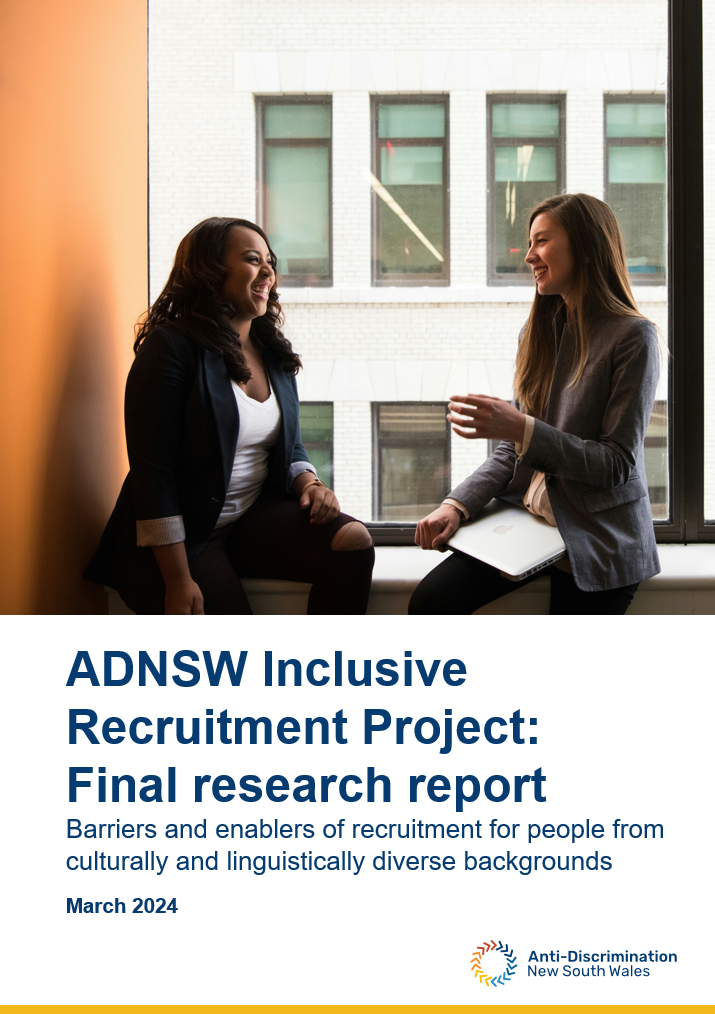This research, conducted on behalf of Anti-Discrimination NSW (ADNSW) by The Insight Centre, reports on the enablers and barriers of recruiting staff from culturally and linguistically diverse (CALD) communities in the public service. The project focuses on recruitment in the NSW Department of Communities and Justice (DCJ) as a case study, but findings will have relevancy for other public service contexts.
The project considers strategies that employers can use to make recruitment processes more accessible and inclusive to CALD candidates. It also explores how public service agencies can attract more culturally diverse job applicants who may not have contemplated a career in the public service.
Phase 1 involved internal and external stakeholder consultation and a research paper reviewing the literature on inclusive recruitment practices.
Phase 2 used a mixed-method approach to centre the lived experiences of job seekers from CALD communities in identifying barriers they face when seeking a job with DCJ/the NSW public service, including in the application, interview and assessment process. This included a survey of 350 CALD job seekers, four online discussion boards with 37 job seekers from target communities and interviews with 11 previous applicants to roles within DCJ.

Download a copy of the final research report: Barriers and enablers of recruitment for people from culturally and linguistically diverse backgrounds (PDF, 3.0 MB)
Phase 3 engaged with DCJ hiring managers to learn how they can be best supported in addressing barriers and creating opportunities for CALD candidates, and with best practice employers from the private, not-for-profit and local government sectors to consider learnings from other organisational contexts.
Throughout 2024, ADNSW will draw on the findings from this research to undertake a co-design process with relevant stakeholders to design a series of resources to support the implementation of inclusive recruitment practices within workplaces.
This report focuses on the quantitative and qualitative research from Phase 2 and Phase 3.
The data across all phases was highly consistent, reinforcing the value of this project for DCJ, the broader public service and employers more broadly. The report outlines key insights and alignment of findings across the various research methods and summarises a range of strategic recommendations for consideration.
Download a copy of the final research report: Barriers and enablers of recruitment for people from culturally and linguistically diverse backgrounds (PDF, 3.0 MB)
Last updated: